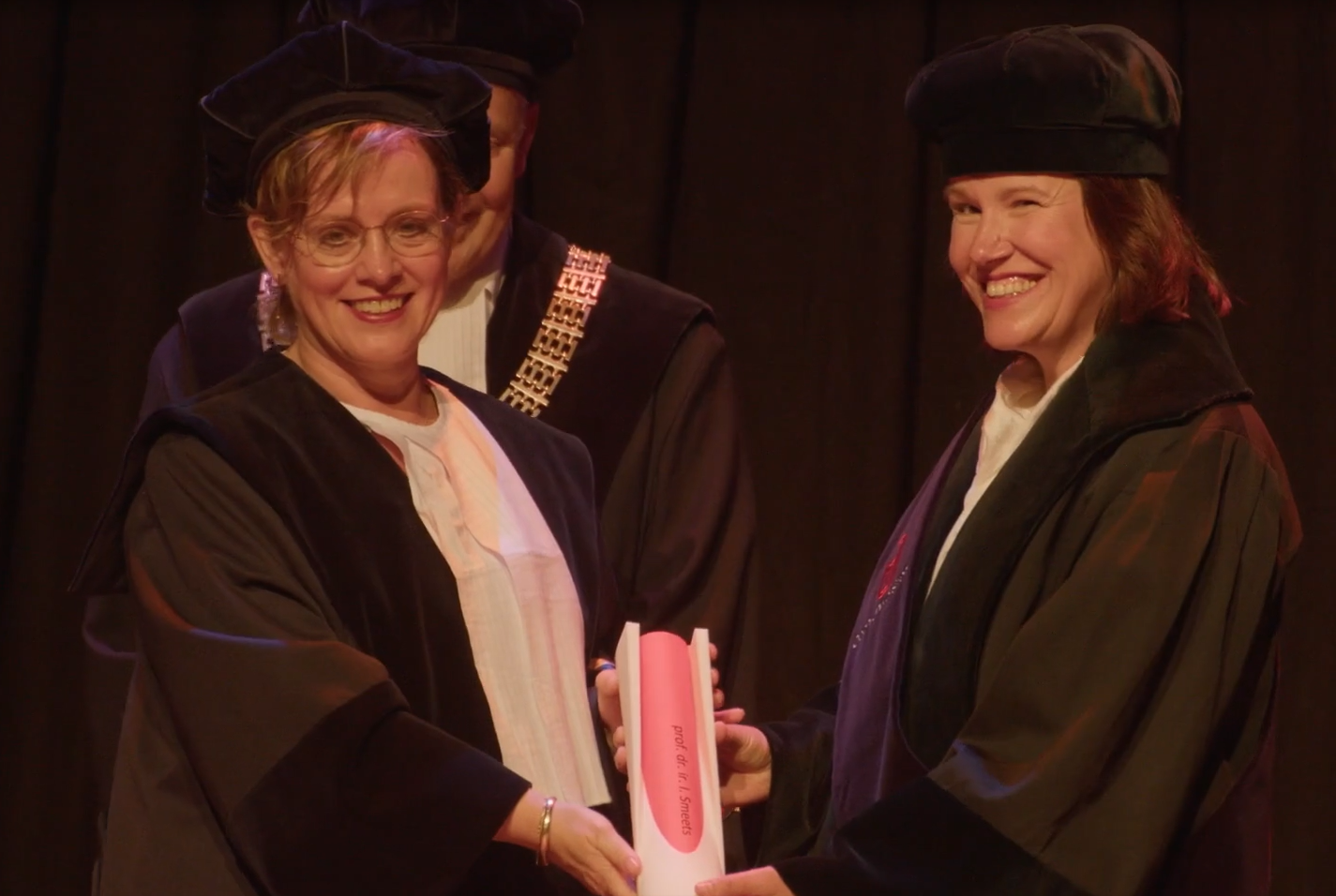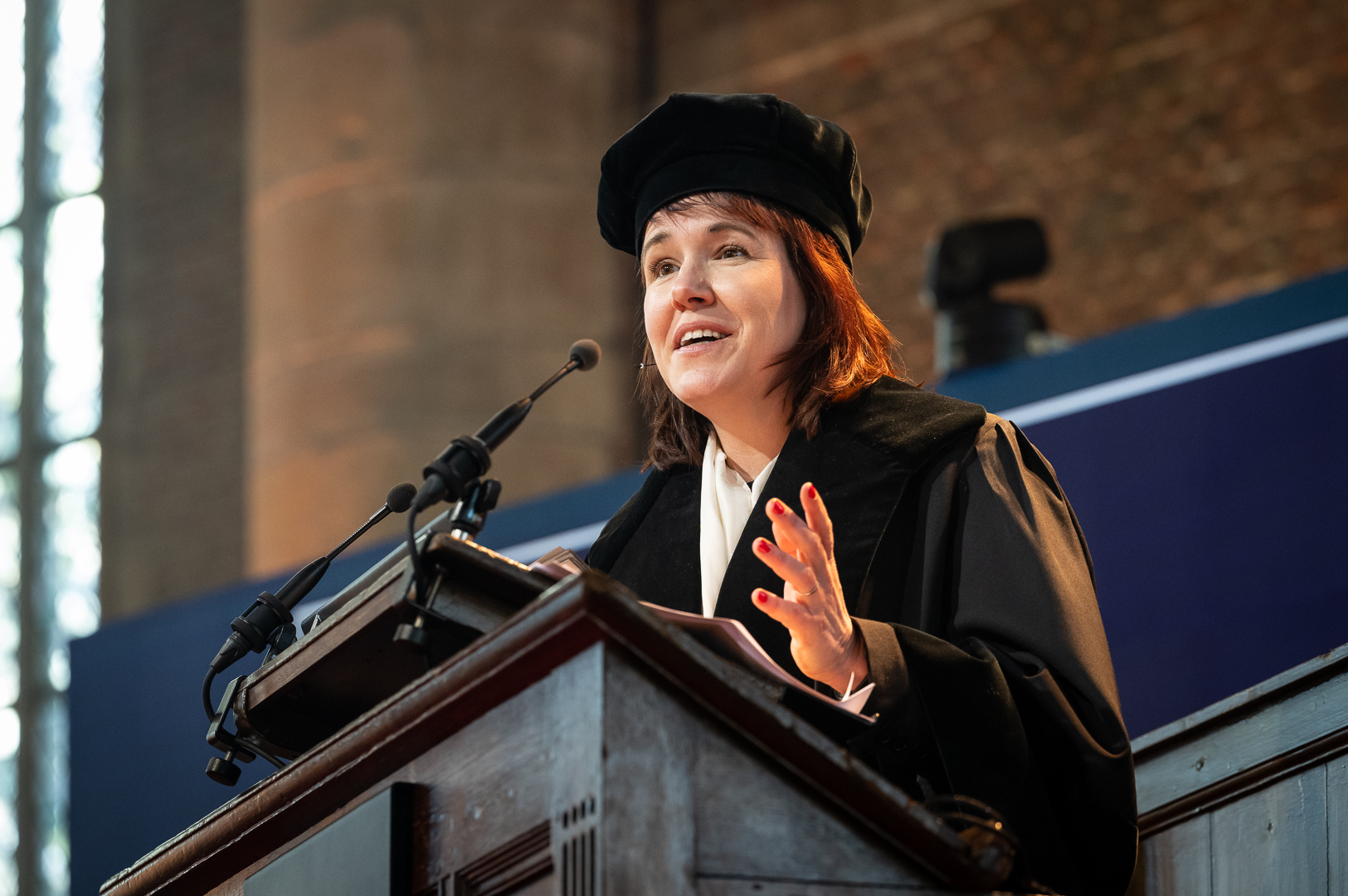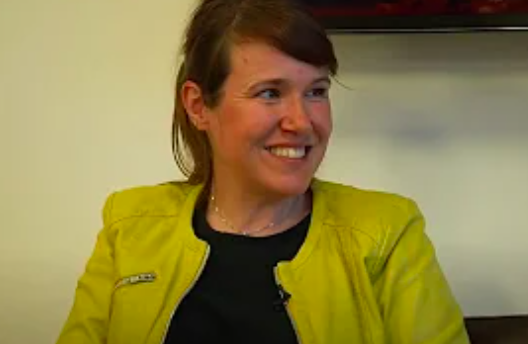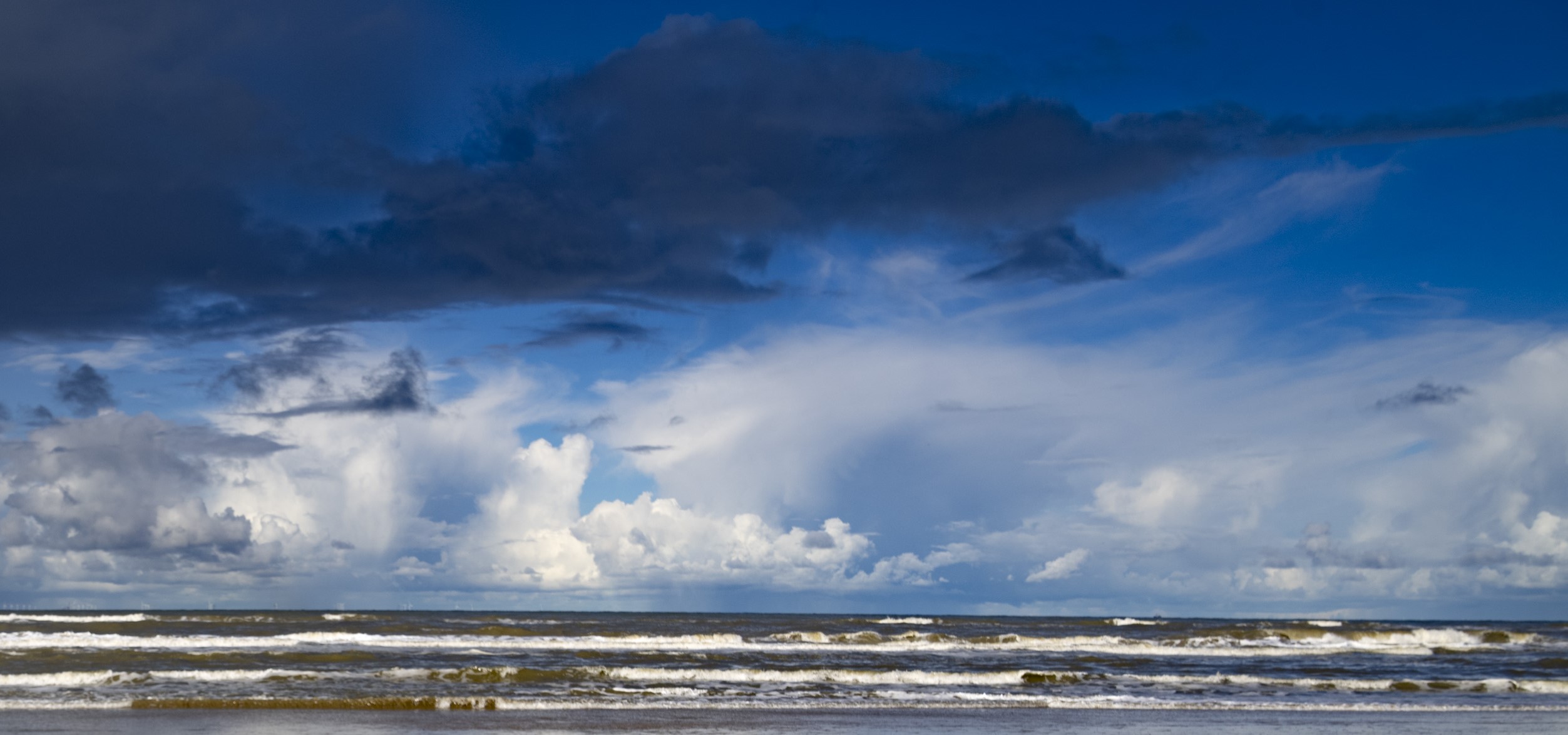Categorie: universiteit
-

Eredoctoraat van de Open Universiteit!
Vorige week ontving ik tijdens de 40ste Dies van de Open Universiteit een eredoctoraat. Ik ben zo dankbaar voor deze erkenning voor mijn werk én die voor het vakgebied wetenschapscommunicatie. En dan mocht ik ook nog de Diesrede met als titel ‘Hoe open is de wetenschap?’ geven. De complete Dies Natalis is nu terug te…
-

Diesoratie
Dit jaar mocht ik een diesoratie geven bij de 448ste verjaardag van de Universiteit Leiden. Dit is hoe de universiteit mijn oratie beschreef: Hoe zorgen we dat wetenschap van waarde is voor de samenleving? Volgens hoogleraar Ionica Smeets is wetenschapscommunicatie daarvoor cruciaal, zo zei ze in haar diesoratie. Aan de manier waarop wetenschappers hun kennis…
-
Leidse wiskundewandeling vernieuwd
Een opgefriste routebeschrijving en vernieuwde teksten en vragen. De Leidse wiskundewandeling is na zes jaar weer in een nieuw jasje gestoken. Van middelbare scholieren tot wiskundigen: iedereen kan de route weer naar hartenlust doorlopen. De tocht is voor iedere wiskundeliefhebber te bewandelen. ‘Het is gebaseerd op het lesprogramma van middelbare scholieren, maar voor een bredere…
-

Ionica in Heidelberg: haardvuurgesprek over wetenschapsjournalistiek en -communicatie
Als begin van haar gasthoogleraarschap in Heidelberg was Ionica te gast bij een haardvuurgesprek. Hierin praat Ionica samen met Prof. Dr. Michael Boutros en Annika Elstermann over de onderwerpen wetenschapsjournalistiek en wetenschapscommunicatie. Het gesprek werd geleid door Prof. Dr. Matthias Weidemüller, vice-rector aan de Universiteit van Heidelberg.
